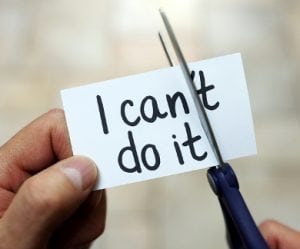Getting into your best marathon mindset
Are you running a marathon? Do you feel daunted by the prospect of getting through the last few weeks of training and the race day from a mental perspective?
We have invited Dr Josephine Perry to give her top tips on some sport psychology things to think about for the final 6 weeks of training and the race day itself.
Dr Josephine Perry, of Performance in Mind, is a Sports Psychology Consultant. She was recently invited to take part in the London Marathon ‘Meet the Experts Day’ to talk about managing race day nerves, staying motivated and coping with the ‘marathon blues’. Read on to find out more…..
Handling nerves on the day
When you have spent so many months, and many hours of your life, training for something big like a marathon then nerves are only to be expected. And those nerves can actually be helpful. Those butterflies flapping about in your tummy can help get your heart rate up, get the blood pumping round your body and get your body and brain excited about what is ahead of you.
When you get too nervous though you can get tense, find your muscles tightening up (risking injury) and feel nauseous. To try to secure excited rather than anxiety inducing nerves you can create a mantra. This is a short phrase that you repeat over and over again to keep positive thoughts in your head.
It will often be about your goal or your motivation for your race and it works best when it is personal to you to remind you why you are doing the marathon. Repeating this mantra over and over will keep your mind positive and you motivated and stops those negative voices creeping into your head.
Staying motivated when you go through a bad patch in training or in the actual marathon
 When you are running for more than 2 hours (and actually more than 4 hours for most of us) on marathon day there will be times when it feels really difficult. Those low patches happen to everyone and while we know deep down we can get through them it can be hard to remember when everything hurts and you are depleted of energy.
When you are running for more than 2 hours (and actually more than 4 hours for most of us) on marathon day there will be times when it feels really difficult. Those low patches happen to everyone and while we know deep down we can get through them it can be hard to remember when everything hurts and you are depleted of energy.
One neat trick to try is to distract yourself. There are hundreds of ways to do this and we each have our own preference. Here are some suggestions for you to try:
- Some people like to count in other languages
- Some make lists of things.
- Some plan exactly what they will eat or drink for their recovery meal
- Others make up stories in their heads about the people around them.
- Or they have a competition inside their head for the best banner
- Or purposely thank every marshal they run past.
Whatever your distraction is, it will take your mind off your body and focus your brain on something else, helpfully meaning when you click back into the marathon you are further down the road towards the finish.
Coping with the marathon blues
 Completing a marathon is an amazing achievement, and you may have spent months dreaming about that moment it is over, you have the medal round your neck and you get to treat yourself.
Completing a marathon is an amazing achievement, and you may have spent months dreaming about that moment it is over, you have the medal round your neck and you get to treat yourself.
But sometimes, when you have lived for a specific date for so long, and focused so hard on your training, it can actually feel like a big come down afterwards and you can get what has been labelled the ‘post-marathon blues’.
To ensure you don’t find yourself in this position there are three things you can do.
- The first is to plan something exciting you can look forward to in the week following the marathon as your treat.
- Next, consider which goal you want to go for next. Is it to go longer, or faster, or to try a variation of road running like a triathlon, cross country or some track events? Set that goal and enter the race.
- Finally, set up some social payback. Social support from your family and friends makes a big difference to how successful you are able to be in your running. So when you have some time off after the marathon use that time to thank them and to support them in their sport or hobby. It will make them feel special, and earn you some brownie points for when you enter your next race!
Josie specialises in helping athletes in endurance sports such as long distance running. triathlons, cycling and open water swimming. But she has experience in other sports too. She has worked with both elite and amateur athletes, helping them to maximise their potential and give of their best in their event through mental skills training. Whether you are an individual or a team – Josie can help you get motivated!
To find out more about Performance in Mind or to contact Josie to make an appointment click here to go to her website.
If you have a physical injury and are struggling with your marathon training – come and see one of our Physiotherapists who can help you with your recovery.
If you have enjoyed reading this blog you might also enjoy our other running blogs. Click here to see the full selection.



